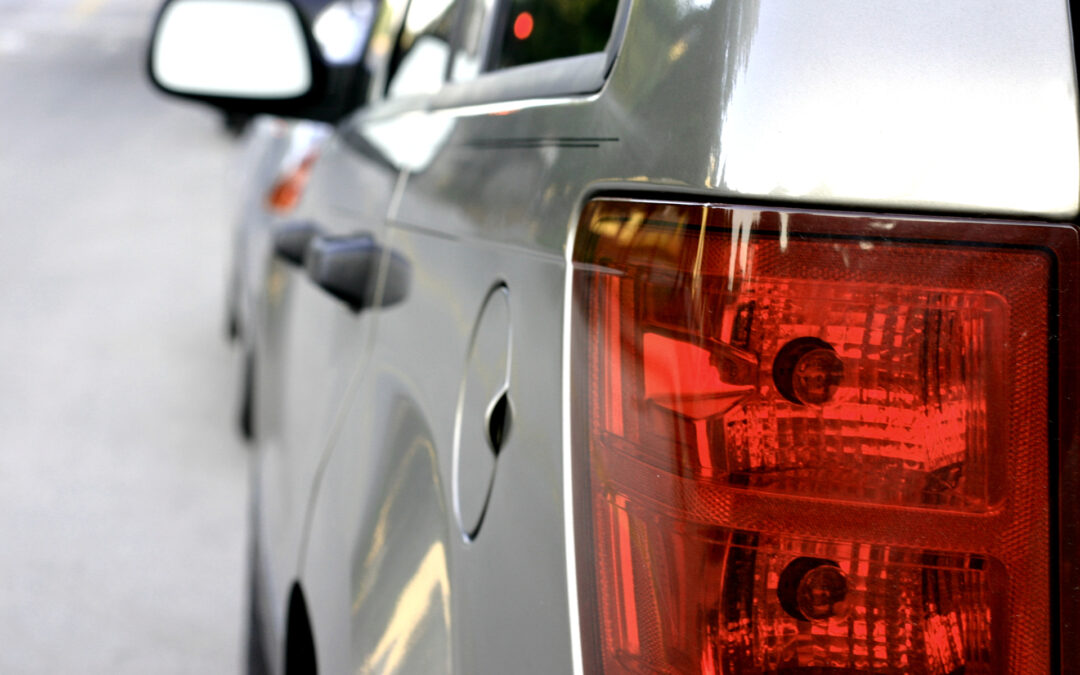Squealing for New Brake Pads
You’re driving along, not a care in the world. Then, you brake while approaching a stoplight. You hear a high-pitched squeal or squeak. You think, well maybe that’s just because it’s raining today. Don’t ignore the squeak! That’s your brakes telling you that it’s time for a new pair of brake pads. Many cars have a built-in wear sensor that scrape against the brake disc when your pads need replacing. When applying the brakes, you’ll hear this annoying sound.
There is no schedule for changing your brake pads. It depends on how often you drive. Not only that, it depends on where you drive. If you live in an urban area, you may only drive about 8,000 miles a year. But living in an urban area, you tend to drive through more traffic and busy streets. As a result, you put on the brakes often. Much more frequently than if you live in a rural area. You can drive down a country road for 20+ miles without hitting the brakes once. This is why you need to rely on your ears and the expertise of your favorite automotive technician. If you get your tires rotated every six months as recommended, this is a great time to have your mechanic check the brake system. They can inspect the thickness and condition of your brakes pads for you.
Brakes are one of the most crucial elements of your car’s performance. If you suddenly need to stop going 60MPH on the highway, it can take the length of a football field to come to a complete standstill. This is easy to forget when you’re rocking out to some tunes with the wind blowing through your hair. Even racecar drivers will tell you that it’s more important to be able to stop than to increase the power and speed of your vehicle. Nobody wants to rear end another vehicle or run into a wall because they can’t stop. Especially a racecar driver going 200MPH! Paying attention to warning signs that your brakes need servicing could mean the difference between life and death. If you hear a squeak, squeal, feel a vibration in the pedal, notice that the car is pulling to one side while braking or even practically hitting the floor with the pedal to stop—it’s time to have your brakes serviced.
If you’re experiencing any of these problems, your brake pads are extremely worn and need to be replaced immediately. If you haven’t noticed any of these issues, but think that your brakes aren’t performing well, do a visual inspection. Inspecting your brake pads is fairly easy. Just view the pads from the outside of the front tire. Sometimes you may need to remove the tire to check the wear, especially if your pads are particularly worn. The outside pad will be looking right at you. If the depth of your brake pad is less than 1/4 inch, it’s time to replace them. If it’s less than 1/8 inch, go to the parts shop immediately! You are dangerously close to damaging your rotors at this point. If you’ve gotten to the point where you hear the squeal, you’ve already begun damaging your rotors. This can cause further braking issues. Have you ever driven a car that just stopped abruptly when you depressed the brake? This is due to damaged rotors. Damaged rotors can also cause the vibrating or pulsating in the brake pedal or even the steering wheel. If you continue to drive on worn out brake pads, your rotors can be irreparably damaged and even warped! Which can cause you plenty more than just a couple of new brake pads.

